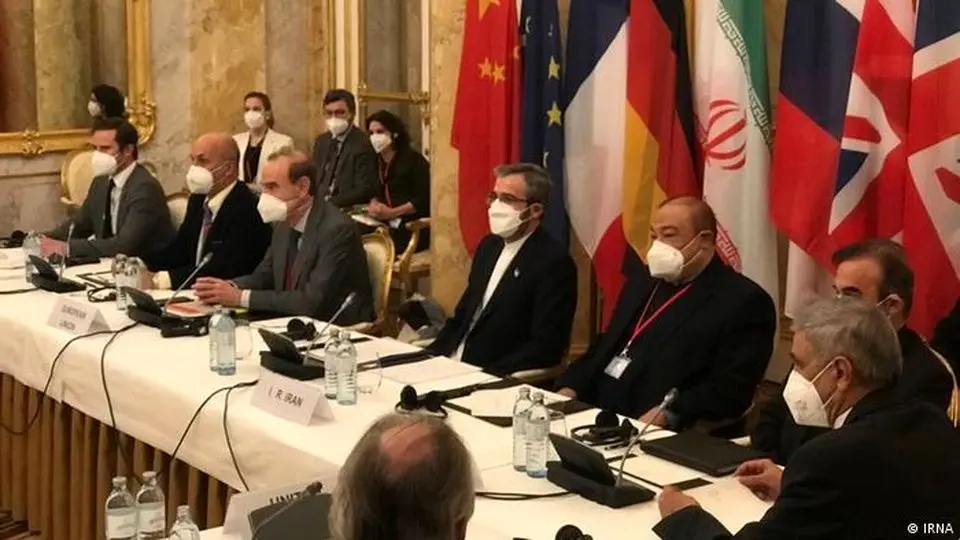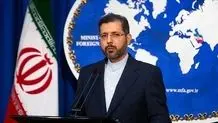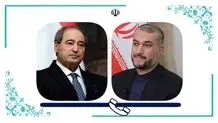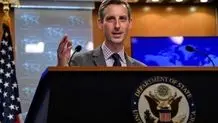In letter on Vienna talks
European figures call on US, Iran to show flexibility
In an open letter, a number of prominent European figures called on the United States and Iran to show flexibility in the Vienna talks.

MEHR:In an open letter, a number of prominent European figures called on the United States and Iran to show flexibility in the Vienna talks.
Today, members of the European Leadership Network with political and diplomatic backgrounds, Board members of the International Crisis Group, and Council Members from the European Council on Foreign Relations issue an open letter calling on Presidents Biden and Raeisi to demonstrate flexibility to see their forthcoming negotiations on the Iran Nuclear Deal through to a successful conclusion, highlighting the non-proliferation benefits of the Joint Comprehensive Plan of Action (JCPOA).
"We write to express our growing concern that negotiations to restore Iranian compliance with and US return to the Joint Comprehensive Plan of Action (JCPOA) appear to have entered a period of stasis that threatens to undo the real and welcome progress made in recent months toward reinstating a non-proliferation achievement that is crucial for international peace and security," the letter read.
According to the letter, at a time when transatlantic cooperation has become all the more critical to respond against Russia’s attack on Ukraine, for US and European leaders to let slip the opportunity to defuse a nuclear crisis in the Middle East would be a grave mistake.
"The JCPOA was a success. Persistent multilateral diplomacy, in which several of the undersigned were personally engaged, secured an agreement that advanced our shared non-proliferation goals. Preserving the benefits of a deal limiting Iran’s stockpiles of enriched uranium, capping its levels of enrichment, and extending the timeline for the accumulation of fissile material that could be used for a potential weapon, all under the watchful eyes of the International Atomic Energy Agency, is the reason why European governments rejected the Trump administration’s reckless decision to abandon the deal without a viable alternative, and have worked hard to keep the deal alive following the 2018 US withdrawal," it added.
"The strategy that the US followed for more than two years after this withdrawal, based on “maximum pressure” alone, yielded little but nuclear escalation, dangerous regional sparring and economic deprivation for the Iranian people. The legacy of this strategic error can today be measured in the tons of enriched uranium Iran has since accumulated, including uranium enriched to near-weapons grade; in the thousands of advanced centrifuges it is spinning; and, in the rapidly dwindling timeframe for Iran to reach a breakout capability. President Biden rightly identified a mutual return, by the US and Iran, to their respective commitments under the 2015 deal as a necessary course correction."
"Since April 2021, negotiations in Vienna have, painstakingly but productively, forged a draft document that will reverse Iran’s nuclear advances in return for relief from US sanctions imposed during the Trump administration that are inconsistent with the JCPOA. As the EU’s Josep Borrell put it over a month ago, “a final text is essentially ready and on the table”," it further noted.
According to the letter, "There are two possible scenarios ahead. In one, the US swiftly shows decisive leadership and requisite flexibility to resolve the remaining issues of political (not nuclear) disagreement with Tehran. On the other, the parties enter a state of corrosive stalemate, serving neither side’s interests, that risk devolving into a cycle of increased nuclear tension, inevitably countered by the further application of coercive tools."
"We know that the politics of this issue are difficult, particularly on issues like the designation of the Islamic Revolutionary Guards Corps as a Foreign Terrorist Organization, which is reportedly the last lingering issue of contention. While the details are, of course, for US policymakers to determine, we believe that there are ways to provide the counterterrorism benefits of the current designation while still accommodating Iran’s specific request, and consider it imperative that these be fully explored. For its part, Iran should not expect a nuclear deal to address broader areas of disagreement between Tehran and Washington. Both sides must approach this final phase of negotiation with an understanding that the strategic implications of failure would be grave and profound," the letter read.
"Based on our long experience in diplomacy and statecraft, we see a deal as eminently possible. Having come within touching distance, we urge President Biden and the Iranian leadership to demonstrate flexibility in tackling an issue of vital significance to the global non-proliferation regime and regional stability and see these negotiations through to a successful conclusion."




